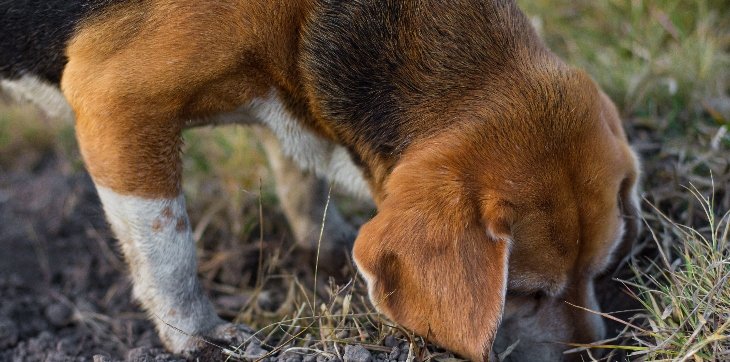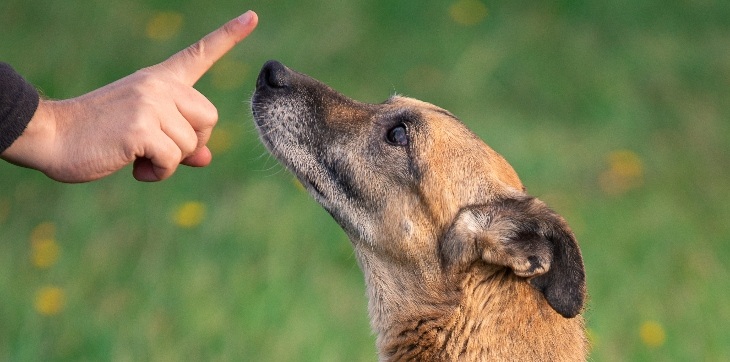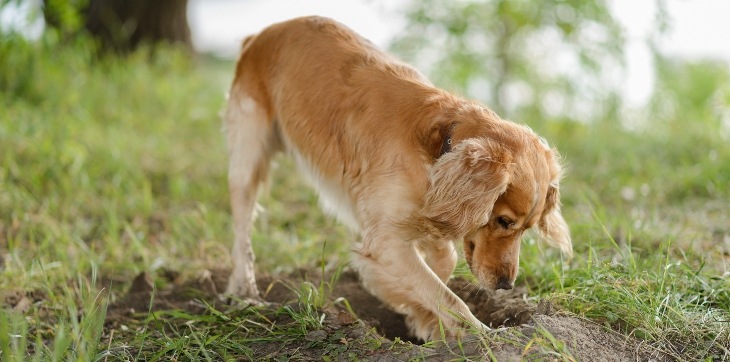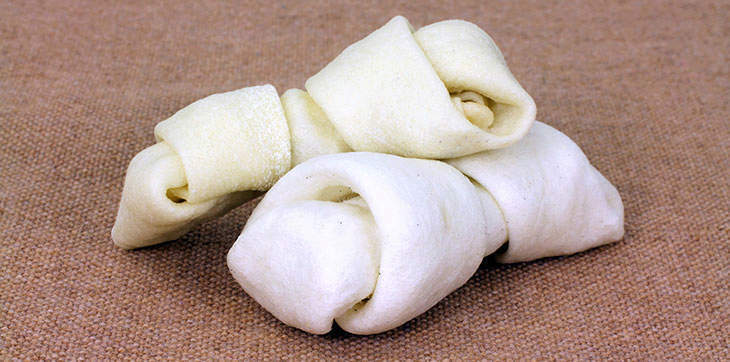Why Do Dogs Bury Bones (And Should You Stop Them)?
As much as dogs love bonding with their favorite people, they prefer to keep some things private! Your four-legged friend may retreat to their bed when they need some “me time,” or they might gather their favorite toys in a secluded spot. Many pups even keep a secret stash of chews and treats in the yard!
This funny dog behavior may make you wonder: why do dogs bury bones? Let’s find out why they hide bones and how you can manage this habit!
Digging into History
Although many dogs today have pet parents who will happily provide their next meal, their ancient ancestors didn’t have it so easy. These wolf-like mammals hunted for food, relying on their ability to track and chase down prey for survival. Nourishment was not always easy to come by, which meant these creatures needed to manage their resources wisely.
When canines’ ancestors managed to catch a meal, they would often only eat some of it—and bury the rest. This hidden food supply ensured there would be more to eat later, even if the next hunt wasn’t successful. Burying also kept keen-nosed scavengers and other hunters from finding the leftovers, as meat is harder to smell underground. This strategy even helped the food stay fresh, protecting it from the sun and some insects.
The Instinct Lives On
Just like their ancestors, modern dogs often bury their valuables to keep them safe! Creating a hiding spot for bones and other natural dog chews is a sign your best friend enjoys them and wants to make sure they can access them again later. This instinct isn’t limited to holes in the ground or edible chews, either. If your dog has ever wedged their favorite play toy between the couch cushions or hidden one of your socks under their bed, they may have been trying to keep it away from “predators” or other pets.
Related: Why Do Dogs Like Bones and Other Natural Chews?
Which Dog Breeds Bury Bones?

While dogs of any breed may bury bones, some breeds are more prone to this behavior than others. The following pups are most likely to safeguard their stuff.
Dachshunds: All dog breeds have a great sense of smell, but Dachshunds have particularly sensitive noses that can sniff out prey above and below ground. The result? An age-old urge to dig and bury that still survives.
Basset Hounds: Speaking of highly sensitive noses, Basset Hounds have helped humans hunt hares and other small animals for hundreds of years. Many members of this breed continue to dig as a way of protecting their belongings.
Beagles: Originally bred as tracking dogs, Beagles are natural-born hunters. It shouldn’t come as a surprise that these pups are in tune with their ancestors’ survival skills!
Miniature Schnauzers: These determined dogs have been bred to catch vermin like rats and mice for over a century. In addition to burying bones and other important items, Miniature Schnauzers may also dig to capture rodents trying to make an underground escape.
Terriers: The American Kennel Club recognizes 31 Terrier breeds, all of which possess excellent hunting and guarding skills. Just like the other hunters on this list, they have a tendency to protect their finds.
Some breeds may be accomplished diggers for different reasons. It’s common for dogs to get bored and resort to this behavior, especially breeds that need lots of physical and mental stimulation, such as Australian Shepherds and Border Collies. Alaskan Malamutes, Siberian Huskies, and other breeds known for adapting to harsh weather conditions might burrow into the ground to keep warm in the winter and cool in the summer.
How to Manage This Behavior

While occasional digging is normal, there are times when you may need to stop it. Dogs who dig excessively, for instance, might wind up with sores or cuts on their paws. Dogs also commonly hide bones and other objects around the house, so it can be frustrating to find your dog’s belongings scattered in laundry baskets, between pillows, and in other unexpected spots. Try these tactics to keep your dog’s habits under control.
Limit access to coveted resources: A major reason why dogs bury bones is so they can save them for another time. So, it’s best to avoid giving your dog edible chews right after they’ve eaten. If your dog likes to bury toys, only let them play with one toy at a time to prevent them from creating a stockpile of “for later” playthings.
Discourage the behavior: A simple way to curtail this behavior is to stop it before it happens. Get your Cadet’s attention if you notice they’re about to bury or hide an object, take it from them, and focus their attention on another activity.
Keep your dog entertained: Although dog evolution helps explain why dogs hide bones, they may also be engaging in this behavior because they’re bored. Take your dog on walks often, make time to play with them, and provide plenty of attention to enrich their mind and body.
Hidden Doesn’t Mean Forgotten!
Not all four-legged friends bury the same way. Some may come back for their hidden possessions soon, while others may keep them stowed away for days or longer. No matter which strategy your dog uses, their burying behavior is a great indicator that they really enjoy the bone or toy you’ve given them!
Those canine instincts help us understand why dogs hide bones…and so many other unusual habits! Find out how your Cadet’s ancient heritage explains why dogs like sticks.




